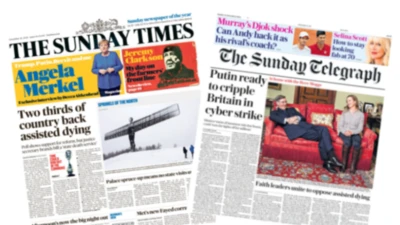We've updated our Privacy and Cookies Policy
We've made some important changes to our Privacy and Cookies Policy and we want you to know what this means for you and your data.
White Paper proposals: What do two GPs think?
GPs are to be given responsibility for at least ВЈ70bn pounds of England's NHS budget, under sweeping changes put forward on Monday.
The proposals will give GP practices control of a large chunk of expenditure, allowing doctors and nurses to decide on the services their patients need.
The health secretary believes GPs are better placed than managers to respond to patient needs.
Both primary care trusts and strategic health authorities are to be phased out over the next four years.
Here are the contrasting views of two GPs who were interviewed on the Today programme on Radio 4 before the full proposals were revealed:
AGAINST
Dr Kambiz Boomla is a GP who practises in the East End of London.
"Firstly it's a very large budget to deal with and we know that there are probably spending cuts coming.
GPs are busy people. We don't have time to do this in between seeing patients, so we're going to have to buy in commissioning support from private companies.
My fear is that the government has a hidden agenda - to allow private companies to buy out GP practices.
But we are responsible to our patients in a way that private companies are not.
Unlike us, they are responsible to their shareholders, wherever they might be in the world.
There's also the danger of conflict of interest.
We could end up with a situation where a private company is placing contracts with sister companies which own hospitals, putting commissioner and provider in business together.
And there will be disputes over costs, which will take time and public money to sort out in the courts.
All markets in healthcare result in inequity.
People who live in better off areas would be able to purchase better healthcare than those in poorer areas.
In my view, there is no place for them at all in healthcare."
FOR
Dr Darin Seiger is a general practitioner from Northampton. He helped set up a GP association, Nene Commissioning, in 2007. With 650,000 patients and 350 GPs, Nene is the biggest example of commissioning by family doctors in Britain.
"If GPs are the drivers of their patient care then that's a good thing.
It's better that practices get extra support to achieve their outcomes than falling short. There will be a variety of providers out there which they can choose from.
If doctors are determining the support they need then that's an improvement.
This is all about redesigning care for the benefit of patients.
Conflicts of interest would have to be declared, of course, but with proper accountability and supervision, problems can be overcome.
Safeguards could be put in place too.
As long as GPs have the right kind of support this can work, particularly if they are split into two groups.
If the 'strategic commissioning' GPs with an interest in redesigning healthcare and the 'providing' GPs more focused on providing excellent healthcare can work together I have no doubt this will work.
The success of these proposals rests on clinicians talking to clinicians and redesigning care for the benefit of patients."
Top Stories
More to explore
Most read
Content is not available








